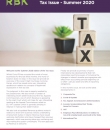Over the last number of years Revenue has changed their position and approach to how they apply the provisions of the employment article of double taxation agreements on almost an annual basis. They have updated their guidance notes on multiple occasions over the last number of years, at one point making it almost impossible for short term temporary assignees to Ireland to be relieved from Irish payroll taxes.
Ireland is one of the most open economies in the world and the approach of Revenue created significant issues for multinational companies as well as confusion and unnecessary complexity. Perhaps one of the most controversial aspects of previous Revenue updates in this area was the fact that Revenue seemed to be applying an “economic employer” concept, which is applied in other jurisdictions, in an Irish context. Some commentators have argued that this concept did not exist in Irish law wherein focus tended to be on the pure “legal” employer rather than an “economic” employer. The effect of this is that arguably in their previous interpretation Revenue were over reaching their legislative remit.
The updated guidance from Revenue is welcome as it reflects a much more practical approach and is more in accordance with international practice. As regard the “economic employer concept, Revenue have specifically stated “In a change from previous practice, Revenue will consider the legal nature (emphasis added) of the term employer in determining whether a genuine foreign employment exists”.
Under the new guidance notes with effect from 1 January 2020, Revenue will not enforce the operation of PAYE in cases where 60 or less workdays are spent in the State in a tax year (subject to the other relevant conditions being satisfied). Each year should be considered on a standalone basis. For those temporary assignees who spend greater than 60 days (but less than 183 days) in the State in a tax year, it will be necessary to apply for a dispensation from the operation of PAYE. New simplified procedures are in place concerning the application for a PAYE dispensation.
In order to qualify for the relief from Irish payroll taxes under double taxation treaties there is a requirement that the costs of the foreign employment are not “borne” by an Irish Permanent establishment. Revenue have confirmed that in cases where a re-charge of costs occurs, such costs will be considered to be “borne” by the Irish entity. However Revenue have also confirmed that “Management charges (with a mark-up) are not considered recharges for the purpose of interpreting this article”.
The above changes and clarifications by Revenue are welcome. RBK can assist you with your inbound and outbound employment tax planning.


Tax Issue - Summer 2020 137.61 KB
Whilst Covid-19 has occupied the minds of most businesses for the last three months, the world of taxation does not stop. In this issue we provide an overview of the recent High Court case involving Perigo, which has raised some very interesting questions in relation to concepts of legitimate expectative in Irish tax law. We also review a number of interesting recent determinations of the Tax Appeals Commissioners. We look at updated Revenue guidance notes in relation to short term business visitors undertaking employment duties in Ireland. Finally we provide a summary of some international tax developments that Irish corporates need to be aware of including the changes in Ireland’s transfer pricing regime with effect from accounting periods beginning on or after 1 January 2020 and DAC 6 reporting obligations.
DownloadOur offices are strategically located to service our market and are easily accessed from any location nationwide.
Termini,
3 Arkle Road,
Sandyford, Dublin,
D18 C9C5, Ireland
RBK Incorporating OMC O'Malley & Company Limited,
Upper Chapel Street,
Castlebar, Co Mayo,
F23 PF21, Ireland
RBK House, Irishtown
Athlone,
Co. Westmeath,
N37 XP52, Ireland
RBK Incorporating MCP Accountants,
Breaffy Road,
Castlebar, Co Mayo,
F23 DY67, Ireland
